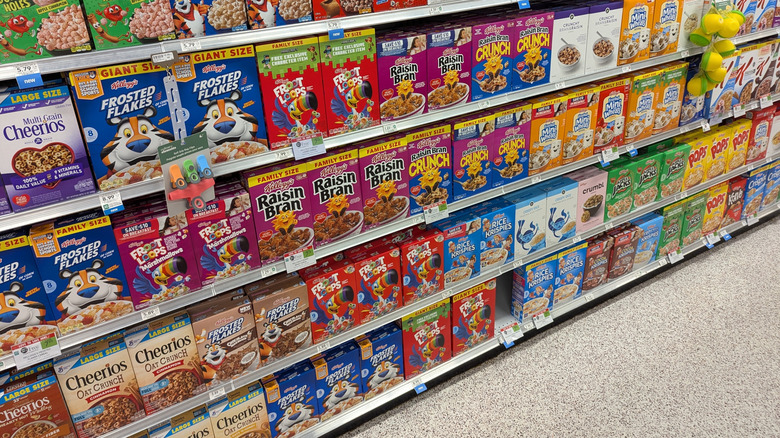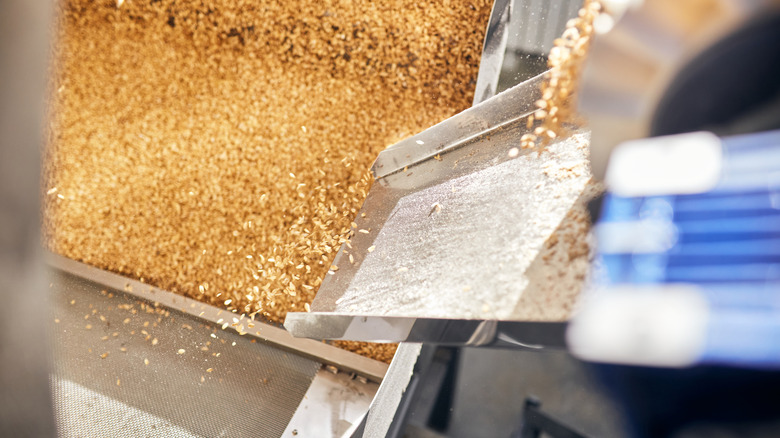The Major Cereal Recall That Took Millions Of Boxes Off The Shelves
While large, elaborate breakfasts are nice, sometimes a simple bowl of cereal is the best part of the day. It's hard to imagine breakfast cereal facing dark days ahead, but some brands have certainly had dark days in the past. In 2012, Kellogg's joined the list of cereal recalls that affected millions. The company recalled 2.8 million packages of both unfrosted and Frosted bite-sized Mini-Wheats because the cereal was possibly contaminated with a foreign material. According to the U.S. Food and Drug Administration (FDA), a foreign material that warrants a recall is something not part of the food that can cause either injury or illness. And, in this case, the Kellogg's cereal possibly contained bits of flexible wire mesh.
The high recall number included packaging sizes that ranged from the smaller single-serve boxes to the hefty 70-ounce bulk containers. Kellogg's maintained that the risk of fragments being in the food or causing injury to consumers was low. But it was still enough to initiate a recall that cost Kellogg's an estimated $20 to $30 million. Thankfully, no injuries were reported related to this incident.
How food manufacturers limit risk of contamination
A nationwide product withdrawal is serious business, and Kellogg's recalls affect millions of consumers. This is part of the reason food manufacturing facilities have spent decades implementing ways to prevent foreign debris like wire mesh from entering foods. According to the FDA, unacceptable foreign items in food are classified as being hard, or sharp, with a length of seven to 25 millimeters. The item must also be found in a ready-to-eat dish, or a food where preparation would not minimize or eliminate the risk posed by the foreign object.
To ensure these hazards are found before winding up in shoppers' homes, facilities install equipment like magnets, sieves, screens, and metal detectors to locate errant fragments in the manufacturing process. Fragments that make their way through these barriers can often be spotted by X-ray machines. Regular maintenance and inspection of facilities help to ensure food safety, cleanliness, and compliance with FDA manufacturing guidelines. However, even with these standards in place, sometimes large-scale recalls like the Kellogg's cereal recall occur.

